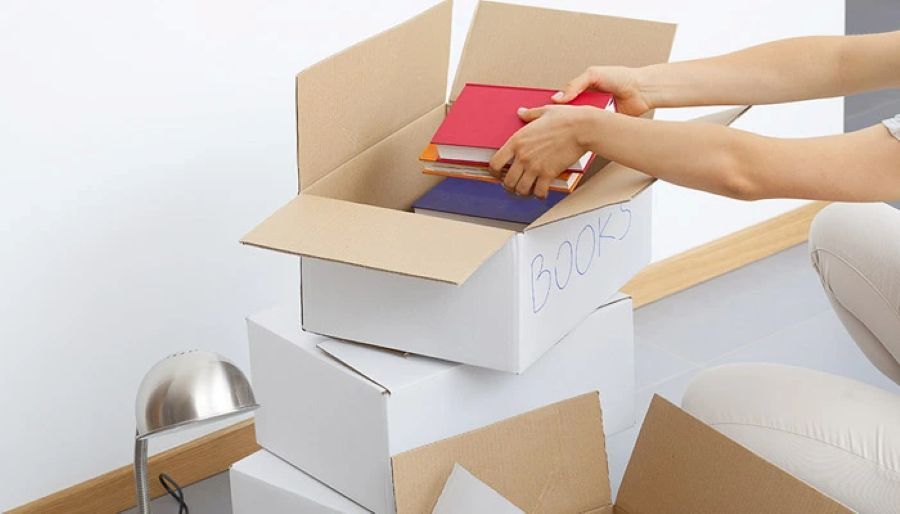How to Handle Utilities Transfer When You're Moving
To handle utilities transfer when you're moving, first ask: who are your current providers, and when do you want service to stop and start? Then, notify them early, schedule shut-off and setup dates, and confirm everything in writing to avoid delays or double billing.
Start Planning Your Utility Transfer Early
The key to a smooth utility transfer is starting early. Most experts recommend beginning the process at least 30 days before your move. Starting a month in advance ensures you have enough time to transfer utilities when moving without problems. This gives you plenty of time to handle any unexpected delays or problems.
Why Early Planning Matters
During peak moving season (between May and September), even getting through to service providers on phone can be difficult as their lines are busy. According to the U.S. Census Bureau, about 40 million Americans move each year, with the majority relocating during summer months. This creates high demand for utility services, so starting early helps you avoid delays.
If you wait until the last minute, you might find yourself in a new home without electricity, water, or internet. Unlike changing your address, which can be done after moving, the failure to change utilities before your move-out day will result in problems when you arrive.
Create Your Moving Timeline
Here's a simple timeline to follow:
- 4 weeks before: Start researching utility providers in your new area
- 3 weeks before: Contact your current providers to schedule disconnection
- 2 weeks before: Set up new service at your new home
- 1 week before: Confirm all dates and arrangements
- Moving day: Take final meter readings
Make a List of All Your Utilities
Before you start making calls, create a complete list of all the utilities you currently use. This helps ensure you don't forget anything important.
Essential Utilities to Transfer
Your list should include:
- Electricity - Usually the most important utility to have working
- Natural gas - For heating, cooking, and hot water
- Water and sewer - Often managed by your city or county
- Internet and cable TV - May need technician visits for setup
- Trash collection - Check if this is included in city services
- Phone service - Both landline and cell phone carriers
- Security system - If you have home security
Gather Important Information
For each utility, write down:
- Company name and phone number
- Your account number
- Current monthly cost
- Any special features or plans you have
Having this information ready makes the transfer process much faster and easier.
Understanding Transfer vs. New Service
Not all utility moves are the same. Sometimes you can transfer your existing account, and sometimes you need to start fresh with a new company.
When You Can Transfer Service
Some providers cable, satellite, electricity, etc. might serve multiple states. In that case, you might be able to transfer services to your new address. This is great news because transfers are usually free and you keep your current rates.
When You Need New Service
If you're moving to another state, then the new area may not be serviced by your current utility companies. In those cases, you'll need to change utilities – canceling them at the old place and setting them up at the new residence with new service providers.
Moving to a new service area might mean paying:
- Cancellation fees at your old home
- Connection fees at your new home
- Security deposits for new accounts
How to Contact Your Current Providers
Once you have your list ready, it's time to start making calls. It's important to notify your current utility providers of your intent to cancel or transfer services as soon as possible, preferably at least 30 days before your move.
What to Tell Your Current Providers
When you call, be ready to provide:
- Your account number
- Your current address
- Your new address
- Your moving date
- When you want service to stop at your old home
Schedule Your Disconnection Date
It's recommended to turn off utilities in your current home the day after you move out and to switch them on at the new home the day before you plan to move into it. This overlap helps ensure you never lose service.
Handle Outstanding Bills
In most cases, utilities cannot be transferred if there is an outstanding balance. Make sure to pay any overdue bills before requesting your transfer. This is also a good time to ask about getting back any security deposits you paid when you first started service.
Finding New Utility Providers
If you're moving to a new area, you'll need to research utility companies in your new location. Use local government websites or ask your realtor for recommendations.
Research Your Options
Don't just go with the first company you find. Take time to:
- Compare prices between different providers
- Read online reviews from other customers
- Check if they offer any special deals for new customers
- Ask about their customer service hours
- Find out if they have online bill pay options
Ask the Right Questions
When you call potential providers, ask:
- What deposits or fees are required?
- How long does it take to turn on service?
- Do they need someone to be home for setup?
- Are there any special rates for new customers?
- What happens if there's a problem with service?
Set Up Service at Your New Home
Once you've chosen your new providers, it's time to set up service. For services needing in-home appointments like cable or internet, call a month ahead.
Information You'll Need
Be prepared to provide:
- Your new address (including apartment number)
- Your preferred start date for service
- Your contact information
- A credit card or bank account for payments
- Photo ID and proof of address
Schedule Installation Appointments
Some services require technicians to visit your home. Try to schedule these appointments for your moving day or shortly after. This saves you from making extra trips to your new home.
Handle Water and Sewer Services
Set up water and waste removal services through your city or county. These services are usually handled by local government, not private companies. You might need to provide:
- Proof of home ownership or rental agreement
- Photo ID
- Previous utility bills
- Security deposit
Understanding Costs and Fees
The good news is that the answer to how much does it cost to transfer utilities is generally zero. A few utilities do, however, have cancellation or start-up fees or may require you to make a deposit.
Common Fees You Might See
- Connection fees: It can range from as low as $10 to as high as $200 or more, depending on the utility and location
- Deposits: Usually required for new customers, especially those with poor credit
- Cancellation fees: Some companies charge for ending service early
- Installation fees: For new equipment or wiring
How to Reduce Costs
To save money on utility transfers:
- Ask about waiving fees for good payment history
- Look for new customer promotions
- Consider bundling services (internet, phone, TV)
- Pay deposits with cash instead of adding them to your bill
Timing Your Transfer Perfectly
Getting the timing right is crucial for a smooth move. Whether transferring or starting with a new company, be prepared for an overlap in services since it's best to shut off utilities at the old home a day after moving out and start utilities at the new home a day before moving in to avoid disruption.
The Perfect Schedule
Follow this timeline for the best results:
Day before moving:
- New utilities turn on at your new home
- Take photos of all meter readings at your old home
Moving day:
- Check that utilities are working at your new home
- Take final meter readings at your old home
Day after moving:
- Utilities shut off at your old home
- Confirm everything is working at your new home
Confirm Everything Before Moving
Check in with your current and new utility providers a few days before moving to make sure the cutoff and start dates are accurate. This simple step can save you from unpleasant surprises.
Special Considerations for Renters
If you're renting your new home, there are some extra steps to consider. Check your lease to see which utilities you're responsible for. Contact your landlord for preferred providers and transfer as needed.
What Your Landlord Might Cover
Some landlords include utilities in the rent, such as:
- Water and sewer
- Trash collection
- Basic cable or internet
- Sometimes electricity or gas
HOA and Condo Considerations
If you're moving to a community with an HOA, check if your fees cover utilities like water, sewerage, gas, and waste disposal. This can simplify your bill payments.
Common Mistakes to Avoid
Learning from others' mistakes can save you time and money. Here are the most common problems people face when transferring utilities:
Starting Too Late
It's no secret that forwarding mail with the postal service and transferring your utilities can be time-consuming. The trouble for people moving is that it's hard to know when to begin the process and know how long it will take.
Forgetting to Pay Outstanding Bills
An unpaid utility bill on your record can cause trouble setting up new accounts in the future. Always clear any overdue balances before requesting transfers.
Not Getting Final Meter Readings
Having an official meter reading report when shutting off service can resolve a billing mistake with proof that can prevent an unexpected charge. Always document your final readings.
Assuming Services Are Included
Don't assume that utilities are included in your rent or HOA fees. Always ask specifically what's covered and what you need to set up yourself.
After You Move: Final Steps
Your utility transfer isn't complete just because you're in your new home. There are a few final steps to ensure everything is handled properly.
Confirm Service Cancellation
After your move, call your former utility company to confirm you are paid up and that your account is closed. This prevents you from being charged for services you're not using.
Update Your Address
Make sure all your utility companies have your new address for final bills and correspondence. Changing your address will ensure you don't miss paying off balances.
Consider an Energy Audit
After moving in, consider an energy audit to identify any efficiency improvements. The U.S. Department of Energy states that a professional energy audit can help reduce your energy bills by up to 30%. Many utility companies offer free energy audits for new customers, making this a smart first step in your new home.
Set Up Automatic Payments
Once everything is working smoothly, consider setting up automatic payments for your utilities. This helps ensure you never miss a payment and can sometimes get you a small discount.
Money-Saving Tips for Your New Home
Moving is expensive, but there are ways to save money on your utility bills in your new home:
Compare Energy Plans
If you live in an area with multiple energy providers, take time to compare plans and prices. The U.S. Energy Information Administration reports that about 14 states have deregulated energy markets, giving consumers the power to choose their electricity provider. If you're moving to a state with a competitive energy market, research choosing the right energy plan and understand the difference between energy suppliers vs. utilities.
Look for New Customer Deals
Many utility companies offer special rates or promotions for new customers. Ask about:
- Reduced rates for the first few months
- Free installation or setup
- Bundle deals for multiple services
Government Assistance Programs
If you're on a tight budget, you might qualify for help with utility costs. The Low Income Home Energy Assistance Program (LIHEAP) can help you pay your heating or cooling bills or get emergency services during an energy crisis. According to the U.S. Department of Health and Human Services, LIHEAP assists millions of households each year with their energy costs.
When Things Go Wrong
Despite your best planning, sometimes things don't go as expected. Here's how to handle common problems:
Service Isn't Working on Moving Day
If your utilities aren't working when you arrive:
- Check that all switches and valves are turned on
- Call your utility provider immediately
- Ask for emergency service if needed
- Document any problems for potential compensation
Billing Problems
If you receive an unexpected bill:
- Compare it to your final meter readings
- Contact customer service immediately
- Ask for a detailed explanation of charges
- Keep all documentation until the issue is resolved
Deposits and Fees
If you're charged unexpected fees:
- Ask for a detailed explanation
- Reference any promises made during setup
- Ask to speak to a supervisor if needed
- Consider filing a complaint with your state's utility commission
Planning for Special Situations
Some moves require extra planning when it comes to utilities:
Moving to a New Construction Home
New homes might not have all utilities connected yet. You may need to:
- Coordinate with builders on connection dates
- Pay for initial utility installations
- Wait longer for some services to be available
Vacation or Investment Properties
If you're setting up utilities for a property you won't live in full-time:
- Ask about seasonal rates
- Consider which services you actually need
- Look into remote monitoring options
Moving During Peak Season
Summer is peak moving season, so schedule early to avoid delays. During busy times:
- Call providers even earlier than usual
- Be flexible with your preferred dates
- Consider moving mid-week instead of weekends
Final Thoughts
Moving doesn't have to mean sitting in the dark or taking cold showers. With proper planning and the right approach, transferring utilities can be one of the easier parts of your move. Remember to start early, stay organized, and don't hesitate to ask questions.
The most important thing is to begin the process at least 30 days before your move. Create a simple checklist of all your utilities, gather your account information, and start making those phone calls. Your future self will thank you when you flip the light switch on your first day in your new home and everything just works.
If you're planning a move in the Edmonton area, remember that Last Stop Moving can help make your relocation as smooth as possible. We understand that moving involves many details beyond just transporting your belongings, and we're here to support you through every step of the process.



